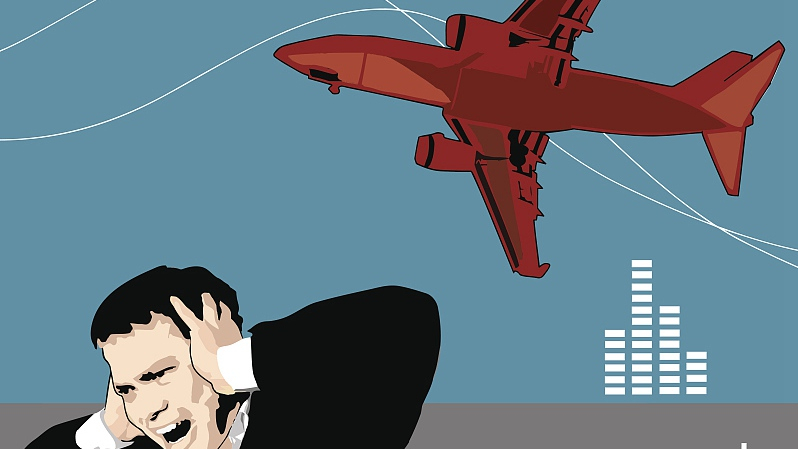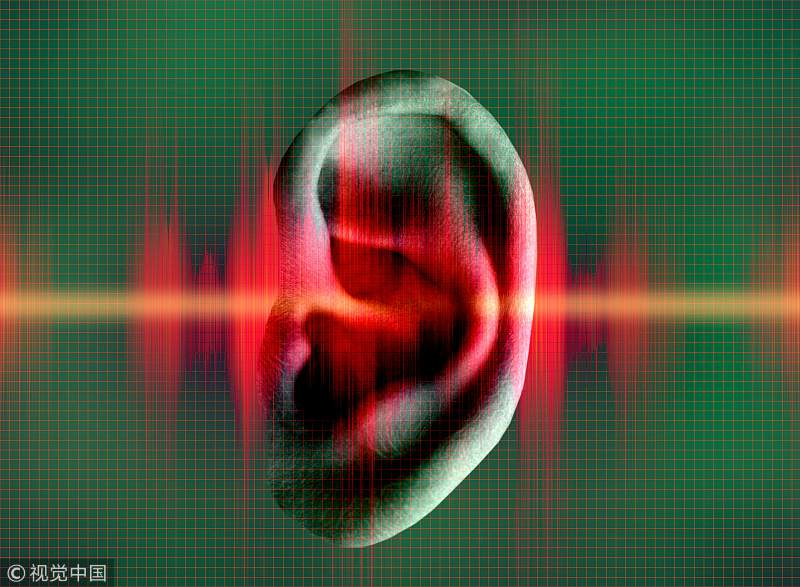
Health
21:38, 06-Nov-2018
Study: Noises linked to increased risks of heart attacks, strokes
Updated
21:02, 09-Nov-2018
CGTN

A preliminary study showed that exposure to environmental noises might increase the risk of heart attacks and strokes.
Loud and prolonged noises can fuel the activity of an area of the brain involved in stress responses and in turn promote blood vessel inflammation, according to the study presented at the ongoing American Heart Association's Scientific Sessions.
The findings revealed that people with the highest levels of chronic noise exposure, such as highway and airport noise, had an increased risk of suffering cardiovascular events like heart attacks and strokes.
"A growing body of research reveals an association between ambient noise and cardiovascular disease, but the physiological mechanisms behind it have remained unclear," said the study author Azar Radfar, a research fellow at the Massachusetts General Hospital in Boston.
"We believe our findings offer an important insight into the biology behind this phenomenon," said Radfar.

Researchers suggested that patients and their physicians consider chronic noise exposure when assessing cardiovascular risk. /VCG Photo
Researchers suggested that patients and their physicians consider chronic noise exposure when assessing cardiovascular risk. /VCG Photo
Researchers analyzed the links between noise exposure and major cardiovascular events among 499 healthy people (average age 56 years). Diagnostic validation was done in a subset of 281 subjects.
Using PET and CT images, the scientists assessed the activity of the amygdala, an area of the brain involved in stress regulation and emotional responses, among other functions.
The researchers also examined the participants' medical records following the initial imaging studies.
Of the 499 participants, 40 experienced a cardiovascular event, such as a heart attack or stroke, in the five years following the initial testing.
The researchers used participants' home addresses and derived noise level estimates from the US Department of Transportation's Aviation and Highway Noise Map.
People with the highest levels of noise exposure had higher levels of amygdala activity and more inflammation in their arteries.
These people also had a greater than three-fold risk of suffering a heart attack or a stroke and other major cardiovascular events, compared with people who had lower levels of noise exposure, according to the study.
That risk remained elevated even after the researchers accounted for other cardiovascular and environmental risk factors, including air pollution, high cholesterol, smoking and diabetes.
Additional analysis revealed that high levels of amygdala activity appears to unleash a pathway that fueled cardiac risk by driving blood vessel inflammation, a risk factor for cardiovascular disease.
"Patients and their physicians should consider chronic noise exposure when assessing cardiovascular risk and may wish to take steps to minimize or mitigate such chronic exposure," Radfar said.
(Top image: A study found that people with the highest levels of chronic noise exposure had an increased risk of suffering cardiovascular events. /VCG Photo)
Source(s): Xinhua News Agency

SITEMAP
Copyright © 2018 CGTN. Beijing ICP prepared NO.16065310-3
Copyright © 2018 CGTN. Beijing ICP prepared NO.16065310-3